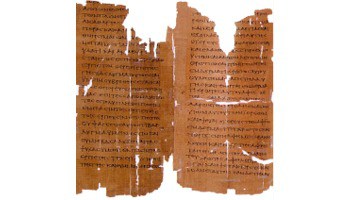Translation: A Greek Tragedy
The idea that any one people could be “chosen” or have a Divine revelation was completely contrary to Greek belief. Their campaign against Judaism and the Jews did not focus on physical extermination, but rather attempted to eradicate the Jews as a special people. One example of this effort was the Emperor Ptolemy’s translation of the Torah into Greek. The Talmud relates that Ptolemy gathered 72 Sages, placed them in 72 separate cubicles and commanded them to translate the Five Books of Moses into Greek. Miraculously they all translated the Torah in exactly the same way, and they all made 13 changes from a literal translation in order to prevent the Greeks from misinterpreting the Torah.
Although this would appear to be a positive event, perhaps as a step toward disseminating the ideas of monotheism and morality, the Jewish Sages looked upon it as a disaster.
The tragedy is that the Torah cannot ever be captured in translation. No language can do justice to its depth, beauty, infinite layers and nuances other than Hebrew.
More importantly, the Greeks would now present the Torah, the essence of the bond between the Jews and God, as public property to be accessed by anyone. They would argue that the Jewish people no longer had any claim to a “special relationship” with God, since anyone could take Judaism 101 at Athens university and know Torah just as well. In truth, in order to properly understand Torah, one must have the Oral Tradition, which the Greeks did not. The true covenant between God and the Jewish people was manifested in the intimate and personal relationship of the Oral tradition, even more than in the publicly available and accessible Written Torah.

